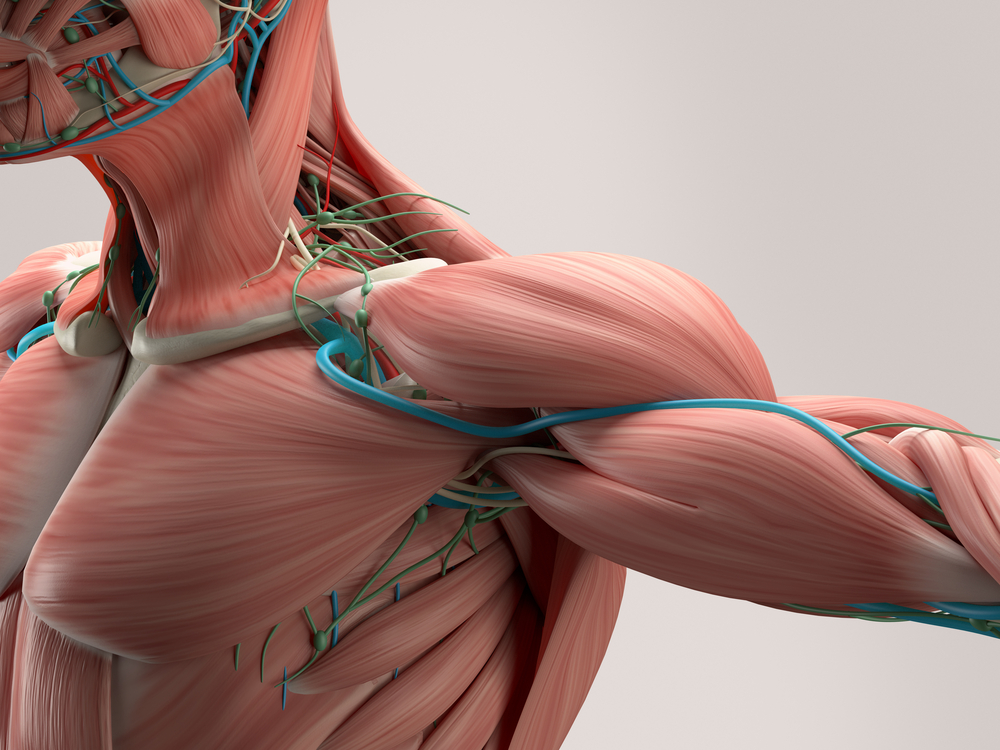Protein with Role in Muscular Dystrophies, and Therapeutic Potential, Identified
Written by |

Researchers have found that a specific protein, CD82, is a marker for muscle stem cells and its expression is reduced in muscular dystrophy patients, suggesting a potential role for this previously unknown protein in the disease.
The study, “CD82 Is a Marker for Prospective Isolation of Human Muscle Satellite Cells and Is Linked to Muscular Dystrophies,” was recently published in the journal Cell Stem Cell.
Muscular dystrophies are progressive disorders affecting children and adults, such as the Duchenne muscular dystrophy (DMD), which is caused by mutations in dystrophin gene. In muscle cells, the protein dystrophin works by interacting with a group of proteins known collectively as the Dystrophin-Associated Glycoprotein Complex (DAPC). In the absence of dystrophin, the levels of several DAPC proteins are severely reduced.
One of the proteins in DAPC is the alpha7beta1 integrin, a key member that stabilizes muscle cells. Accordingly, overexpressing the alpha7beta1 integrin in a mouse model for DMD significantly ameliorates the dystrophic pathology.
A protein that was shown to interact with the alpha7beta1 integrin is the tetraspanin KAI/CD82.
Researchers investigated the role and usefulness of CD82 in the context of muscular dystrophies, since in skeletal muscle, tetraspanins have been associated with muscle differentiation and/or muscle function.
They discovered that the tetraspanin CD82 is expressed in human muscle stem cells, and found that CD82 is an excellent marker for prospectively isolating stem cells from human fetal and adult skeletal muscle. Its expression is also maintained in activated and differentiating myogenic cells, i.e., CD82 expression in muscles is not restricted to stem cells.
When the team decreased CD82 expression in purified myogenic cells, it observed a decrease in muscle cells proliferation and differentiation. Likewise, myogenic cell differentiation increased when CD82 expression was upregulated.
Looking specifically to DMD, researchers found that CD82 expression is, overall, reduced in DMD myogenic cells and muscle tissue lysates. Importantly, they noted that CD82 expression was detected in regenerating muscle fibers. These findings suggest that CD82 is functionally involved in muscle homeostasis.
Researchers also found that CD82 physically interacts with alpha7beta1 integrin and with alpha-sarcoglycan, a member of the DAPC, both linked to muscular dystrophies. In fact, CD82 expression is decreased in DMD patients.
These findings suggest that CD82 function may be linked to muscular dystrophies. Future studies are needed to elucidate how CD82 interaction with other proteins may translate into potential therapeutics for muscular dystrophies.





